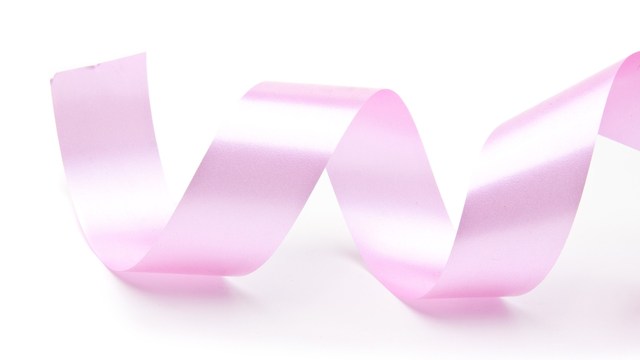i just had a bilateral diagnostic mammogram which showed calcifications in both breasts, but more in the left one. then had a breast ultrasound of the left breast which showed a possible cyst and confirmed the calcifications. the radiologist said i have both macro- and micro-calcifications in the left one. the right one seems 'normal'.... she recommended a stereotactic biopsy. so what might cause calcifications in both breasts... and more importantly, could i have something more serious in the left one (ie cancer)?
All user-generated information on this site is the opinion of its author only and is not a substitute for medical advice or treatment for any medical conditions. Members and guests are responsible for their own posts and the potential consequences of those posts detailed in our Terms of Service.



Add a Comment7 Comments
thank you for the Komen site. really informative and helpful!
November 23, 2010 - 7:50pmThis Comment
This is a great website, too: http://ww5.komen.org/BreastCancer/BreastCancerRiskFactorsTable.html
November 23, 2010 - 3:17pmThis Comment
thanks Miscortes,
it's been frustratingly slow to get a biopsy scheduled - but in the meantime, i know that the radiology report says that there are suspicious abnormalities in the left breast at 1 o'clock. and rates this as BI-RAD4 - which means it could be cancer, correct?
in what case/circumstance could this not be cancer?
November 23, 2010 - 10:29amthanks.
This Comment
It sounds like you know this information, but I wanted to clarify for other women as well:
BI-RAD is an abbreviation for: Breast Imaging Reporting and Database System. The result you received from your mammogram, BI-RAD4, is based on a scale from 0-6.
Zero (0) means additional information is required; unknown.
One (1) indicates a negative; no abnormalities present
Two (2) indicates benign or non-cancerous finding
Three (3) indicates probably benign
Four (4) indicates "suspicious abnormality"; it could or may not be cancerous
Five (5) indicates "highly suspicious of malignancy" (cancer)
Six (6) indicates known or proven malignancy
It is extremely difficult to wait on test results, only to find there is an unknown or suspicious finding, and then we are required to wait longer to have additional testing done. I am sorry you are going through this right now; the waiting and wondering is often the most difficult part of the process.
Your assessment of a 4 means that it could be cancer, and it may not be cancer. The only way to know if it is or not is to do a follow-up biopsy.
There are no specific cases or circumstances that can tell you what the "suspicious abnormality" is, beyond what your personal risk factors are for breast cancer: Understanding Risk Factors.
Do you have many of these risk factors for breast cancer? Have you had a family history of breast cancer in your family, or benign abnormalities of breast tissue?
Many times, there are no symptoms that indicate if a lump or abnormality is benign or malignant. A biopsy or further testing will be your best indicator for a proper diagnosis. Have you been able to get one scheduled?
Source:
November 23, 2010 - 1:20pmhttp://www.breastcancer.org/symptoms/testing/types/mammograms/results.jsp
This Comment
thank you for this... i don't have many of the risk factors (i don't eat meat, drink red wine only - and hardly ever, don't smoke, exercise regularly). the only 2 factors that might apply are that i'm 39 years old and never been pregnant. and my maternal grandmother and maternal great-grandmother both had breast cancer - although they were diagnosed after age 50. any thoughts?
i haven't been able to schedule a biopsy yet - insurance issues are getting in the way - but hoping to get one scheduled soon.
thank you for all this info - i feel like i don't have anywhere else to turn for advice or answers.
November 23, 2010 - 1:36pmThis Comment
The only information I found about family history of breast cancer:
"Breast cancer risk is higher among women whose close blood relatives have this disease.
Having one first-degree relative (mother, sister, or daughter) with breast cancer approximately doubles a woman's risk. Having 2 first-degree relatives increases her risk about 3-fold."
This means your grandmother and great-grandmother would not be associated with a much higher risk of breast cancer for you.
Let us know if we can help you find any additional information!
November 23, 2010 - 3:16pmThis Comment
Hi Brook,
Breast calcifications do not always mean breast cancer although there is the possibility. Your physician taking the extra measure to perform the biopsy will determine if there is a possibility of breast cancer. Calcifications are tiny build ups of calcium in the breasts. Cysts are very common and are a fluid filled and as per BreastCancer.org, are usually not associated with breast cancer.
For more information, check their website here http://www.breastcancer.org/symptoms/testing/types/mammograms/mamm_show.jsp?gclid=CKymlqDpr6UCFUVqKgodPWMyYA.
Could you kindly keep us updated on your biopsy results?
Thanks and good luck,
November 20, 2010 - 9:39amMissie
This Comment